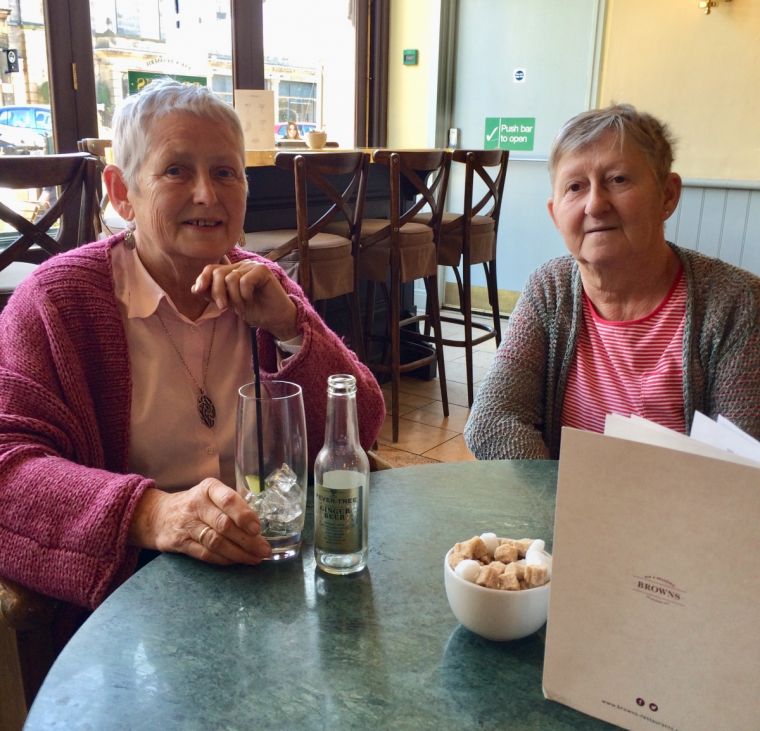Church elder donated her kidney to a stranger in need - now they share an unbreakable bond

Margaret Jackson and Maureen Jack look like two ordinary women but they were strangers until a life-changing act of generosity a few years ago forged not only a close friendship, but a unique bond.
Today marks World Kidney Day and the two women - dubbed the 'kidney twins' - are sharing their story to celebrate the occasion.
Ten years ago, Maureen, 72, decided to do something remarkable by offering to give up one of her kidneys to save the life of a complete stranger.
Maureen, an elder at St Leonard's Parish Church in St Andrews, Scotland, called it a 'minor inconvenience' but to Margaret, it made a 'huge difference' to her life. In effect, Maureen's donated kidney saved her life.
'I would be dead now if I hadn't had a kidney transplant because I was in desperate need,' said Margaret, 67.
'What Maureen did was amazing and she has given me my life back.
'I was in hospital for three months and I was lucky enough to be the best match for her kidney out of a waiting list of 8,000 people.
'She has done me a very good deed and I'll be forever grateful.'
While most donors and donor recipients have little or no contact with each other after the procedure, the two women have formed a close friendship and even refer to the donated organ as 'our kidney'.
Maureen, who is also a member of the Church of Scotland's World Mission Council, was inspired to give one of her kidneys after visiting someone in hospital who was able to come off dialysis after recovering from a kidney problem.
It's all the more meaningful as World Kidney Day falls on the anniversary of the death of her husband George 20 years ago.
'He died from a non-kidney related problem and I would have done anything to give him his life back,' she said.
'So being able to do that for someone else has been important to me.'
Now Maureen, a supporter of Give a Kidney Scotland, is encouraging others to consider joining the register to become an altruistic kidney donor.
Around 500 people are on the waiting list for a kidney transplant in Scotland but over the past decade, 264 people have died while waiting for an operation.
Maureen said the reaction of her friends was mixed but she has never regretted her decision, having been able to live a normal and health life with only one kidney.
'However, relatively few of us will die in such a way that it is possible for our organs to be used after our death,' she said.
She added: 'It would be terrific if some folk in the Church would also consider this kind of giving.'











